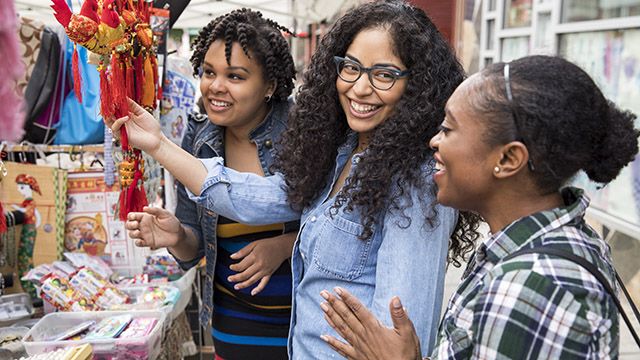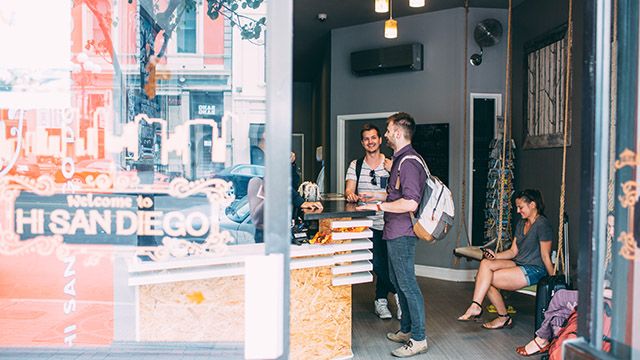So, you’ve got your flight carbon offsetting plan and your reusable straws, but are you really traveling as sustainably as you can? The last few years have brought buzzwords like “eco-friendly” and “sustainable” into the travel sphere because we’re becoming more aware of the impact our actions have on the planet. But responsible travel is about more than just the environment. Sustainability is also about how people, communities, and cultures are impacted.
What is social sustainability?

Social sustainability is all about monitoring our impact on people. It is primarily talked about in terms of business practices. For instance, does a business have practices that promote social welfare for the immediate community as well as those workers in the product chain? One example is a business that gets their products from sweatshops, versus one that utilizes local artisans who are paid a fair wage. Obviously, one is much more socially sustainable than the other!
The UN discusses social sustainability in terms of specific groups like laborers, women, children, indigenous people, people with disabilities, and those living in poverty. These are the populations you should keep in mind when looking for socially sustainable businesses.
Why should travelers keep social sustainability in mind?
When we travel, we create a huge economic impact on the communities we visit. From the transportation we use and the accommodation we choose, to the places we eat and the tours we join, the choices we make affect local businesses.
And since tourism contributes to over 10% of the global GDP, it means that as travelers, we have the power to promote social sustainability by being mindful of how we spend our money.
How to know if a business is socially sustainable

One of the main ways travelers can practice social sustainability is to support businesses that are already doing the hard work. Here are some questions to consider when searching for socially sustainable organizations:
- Who do they employ? Look for companies employing locals or running employee training schemes for disadvantaged or disabled people.
- Who do they source their products from? Products should ideally be locally sourced or produced, or with a clear product chain. No sweatshops!
- Are profits put back into the local community? Many corporate chains siphon the majority of profits out of the local economy, so look for small, local-run businesses.
- Are there ethical labor practices? Do they have fair wages and fair hours for employees?
- When you ask them about social sustainability, do they have a clear answer? Many businesses will list this information on their websites as they are proud of their socially sustainable practices! If it’s not clear, shoot them an email or ask in person.

Easy ways to practice social sustainability on your travels
By now, you’re clear on what social sustainability is and why it’s so important we factor it into our travel decisions. Here are some easy and actionable ways you can be more socially sustainable on your next trip.
Buy your travel clothing and luggage from a socially sustainable company
Social sustainability begins before you even hit the road. Raise your hand if you’re guilty of going on a shopping spree before each vacation! Next time, try to buy from small businesses or companies with socially responsible practices.
Book tours offered by locals
Many bigger tour companies actually operate out-of-country, and take the majority of profits. Book a tour run in the place you’re visiting, which employs locals and is more likely to support other local businesses as well.

Stay in accommodation with positive social values
Rather than staying in a large corporate hotel chain, look for homestays, family-run accommodations, reliable hostels, or any accommodation that incorporates aspects of environmental and social sustainability into the way it’s run.
Eat at non-chain restaurants
Explore the local flavor and support the local economy by eating at local or family-run restaurants. This guarantees your money is supporting those in the community while you get to experience the culture through its food.
Shop from local crafters and artisans
Many souvenir stalls are guilty of selling mass-produced, inauthentic products (often produced in environments with unfair labor practices). Instead, look for shops or stalls run by local artisans.

